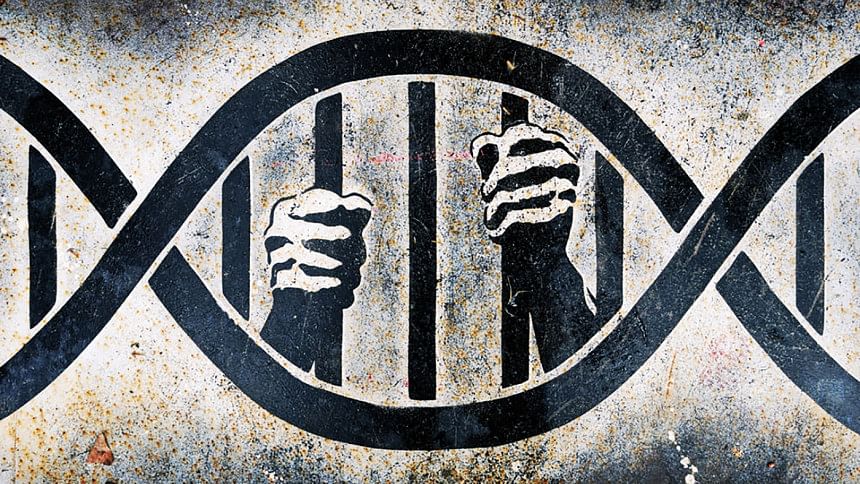Innocence Project in the pitfall of criminal justice system

The New York based Innocence Project is a legal attempt that is committed to exonerate wrongly convicted people through the use of DNA testing and to reform the criminal justice system for preventing future injustice. The standard that must be met by the prosecution in criminal cases is ‘beyond reasonable doubt’. But after the emergence and activism by the Innocence Project in the USA criminal justice system, it must now be accepted that guilt beyond reasonable doubt in the courtroom does not always equate to actual guilt. This is one of the potential answers for why the western thinkers ardently criticise imposition of death penalty and supports the abolition of it. The adversarial system relying largely upon the police investigation and the court having a standard of judging the accused ‘beyond the doubt’, at times pave the way for ‘beyond the doubt’ guilty dictum wrongfully. The evidence law has shown an alarming limitation in deciding the guilt of the accused.
One instance can be of Jennifer Thompson, a rape victim from USA whose testimony helped wrongfully convict Ronald Cotton, an innocent man, stated in the New York Times, “I studied every single detail on the rapist’s face. I looked at his hairline; I looked for scars, for tattoos, for anything that would help me identify him. When and if I survived the attack, I was going to make sure that he was put in prison and he was going to rot … I knew this was the man. I was completely confident. I was sure …” She now campaigns to highlight the potential problem of eyewitness identification. The court had reached the decision convicting the accused by the direct evidence from the victim herself which made the sense of ‘beyond the doubt’ yet resulted in a wrongful conviction. How may it now be accepted that guilt beyond reasonable doubt in the courtroom always equate to actual guilt? The reasons behind wrongful conviction may have played the role in wrongful convictions such as the use of informer evidence, overzealous or improper police investigation or prosecution, tunnel vision, incorrect scientific evidence, plea bargaining, false confessions, community pressure for conviction/media, race and even bad defense lawyering.
The project was established in 1992 at Benjamin Cardozo Law School, Yeshiva University, New York by its co-founders, Barry Scheck and Peter Neufeld. It is estimated that exonerations have occurred in approximately 40 percent of cases that the Innocence Project has been able to investigate till the stage of conclusion, as informally stated by Barry Scheck in 28 January 2003.
Ensuring applicability of the Innocence Project in Bangladesh as well as in the South Asia is a difficult deal. There are instances of wrongful imprisonment in Bangladesh such as the case of Jaha Alam who was accused of misappropriating around BDT 18 crore from Sonali Bank between 2010 and 2011 while the real accused Abu Salek was roaming free. He spent three years in jail before being freed by the suo moto order passed by the High Court following a newspaper report. In another case, the victims, Abdul Quader and Mofizur Rahman, were freed in 1989 after serving three years in jail for cattle smuggling from India and were declared innocent after 29 years of being freed. The court or the government has not remedied the wrong in any way. There has been no question on whether they deserve compensation. These instances show that, while DNA testing may unearth the reality of wrongful conviction, the majority of claims of wrongful conviction may not involve DNA evidence. Furthermore, traditional re-investigation of cases is a long and arduous task, particularly in cases where DNA testing is not involved.
The joint venture of science and law to address the international criminal justice problems termed and operating as the Innocence Project is indeed a laudable project. But it also has its own limitations and challenges. It has time and again proved itself effective in the context of the developed countries. Because the costs and voluntary efforts for the investigation and DNA testing for the exoneration of the wrongfully convicted are surely unbefitting for countries belonging to the third layer of the world. Rather, it is the genuine flaws underlying the criminal justice system and the evidence law that has to be reviewed with proper care. This doesn’t negate the credibility of the work of the Innocence Project. The ethos of Innocence Project but needs to be included in the criminal justice system as a way of formal procedure and not merely as a voluntary project undertaken by academic or private personnel. Otherwise it will stay as the legal innovation of the developed countries and the benefit of the science of DNA will remain inaccessible to the people undergoing wrongful convictions around the world. For too long, the voices of the innocent in prisons have been lost amongst the common catch-cry that ‘everyone in prison says they are innocent’. However, not everyone in prison does claim to be innocent. Amongst those who do, there will be those who truly are innocent but convicted. The Innocence Project is the pioneer of dismantling the status quo in this regard.
The Writer is a Researcher of International Law (LLM), South Asian University, New Delhi, India.

 For all latest news, follow The Daily Star's Google News channel.
For all latest news, follow The Daily Star's Google News channel. 



Comments